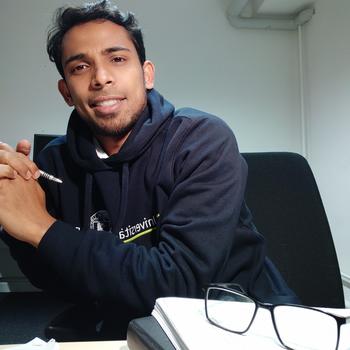Muhammedali Puthoor

(DAAD Doctoral Fellow)
One party for various Muslims: AIMIM and its Muslim constituents in Hyderabad
One party for various Muslims: AIMIM and its Muslim constituents in Hyderabad
Muslim politics since independence have evolved from “a separatist trend to a ‘citizens politics’ articulating demands relating to jobs, income, education and so on” (Alam,2008). The discussion on Muslim politics in India, in general, tends to treat the community to be monolithic category grappling with the same problems everywhere. Portraying Muslims as a monolithic category have been contested and the existence of various doctrinal factions among them justifies it (The World’s Muslims: Unity and Diversity, 2012) As Hilal Ahmed asserted “[M]uslims tend to follow various sect-based interpretations of religious texts and region-based rituals and customs. It is this religious-cultural distinctiveness which makes Indian Islam a highly diversified phenomenon” (Ahmed, 2014). Implications of the internal diversity among Muslims include exclusion, conflicts and sometimes violence (Sharma, 2015). It is important to talk about the diversity among Muslims and how does it account for the Muslim politics in the country.
Studies on political entity of Islam have invariably been dominated by either sectarian debates or security concerns. Latest publications on the subject of Islam and politics at the international level underscores this fact (Tareen, 2020) , (Louer, 2020) , (Perry, 2020) .This project proposes a study of All India Majlis-e-Ithehadul Muslimeen, a political party based in Hyderabad India and its Muslim constituents that is marked by plurality on the lines of doctrinal factions and intra-community polemics. Engaging with the discourse on democracy, secularism and religion, Islam being emphasized in this case, I try to explore how politics and religion are negotiated and reconciled for Islam/ Muslims in Hyderabad/ South Asia and beyond. This is supposed to open windows to look at the AIMIM and Muslim Politics going beyond the narratives of sectarianism as well as the compatibility between Islam and Secularism.
An ethnographic enquiry on the Jalsas (Public Gatherings) on the eves of Islamic festivals such as Milad-un-Nabi, Ashura and Two Eids, I seek to understand how does AIMIM balances and reconciles the doctrinal differences among various Muslim groups in the city of Hyderabad and its implied dynamics of power relations between the religious leadership and the party organization.
Erstgutachter: PD Dr. Dietrich Reetz

